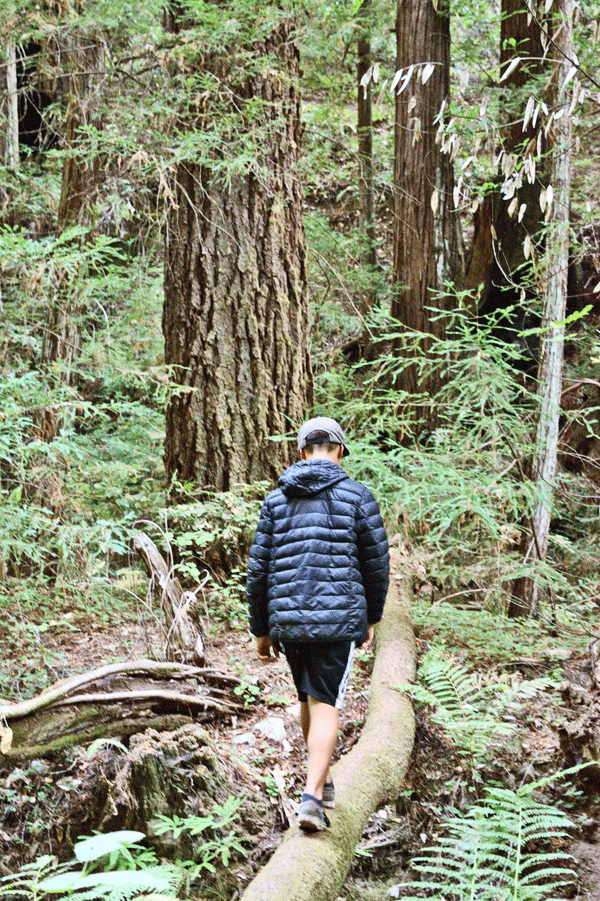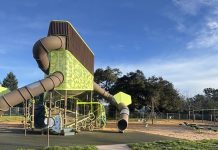Using proven research about the way the brain processes information and makes connections; The Wilderness Skills Institute guides its students in learning how to learn efficiently and effectively. The connection between education, health and fitness is demonstrated by the success enjoyed by the students who are enrolled in the WSI classes. In this educational environment, students are encouraged to become deeply involved with the subjects about which they are passionate. Subjects that most young people enjoy are adapted to teach science, reading, writing and mathematics. All of the learning is accomplished in an outdoors environment.
Brian D. King, Director of Education, said “The Academy at Wilderness Skills Institute is an undeniable escape from what can be an otherwise hectic life for most students. By design, Wilderness Skills Institute has eliminated the typical noise of schools. ”King explained that what’s gone from the Academy are sounds of buzzers, whistles, fluorescent lights, fans, crowded classrooms, teachers practicing ‘classroom management.’
“Substituted are the sounds of birds, water flowing in a creek, and wind in the trees. Just the ‘sound-scape’ indicates that these students will have an entirely different experience than if they were in a crowded classroom,” said King. WSI takes pride in the practice of dealing with each student as an individual. Each coach or mentor takes into consideration each student’s talent, temperament and skill set. They guide each child to discover what subjects should be in his or her own learning program.
Being in the wilderness provides an environment where each child is enabled to develop deep connections with their own subject material and that helps learning to occur. Youths, both boys and girls, learn confidence and become self reliant. In this project-based approach to learning, the classroom and its desks are replaced by experiential-based learning out of doors. When WSI students develop their own goals, the outcome is that the students become passionate about learning.
“Nature is not something this academy does for an hour or two one day a week, or an incentive to get their classroom work done, nature is the norm. The students receive a healthy daily dose of nature,” said King.” During the school year the students spend 1020 hours in nature, their classroom and study hall is the forest, their play yard is a creek, their gym is felled redwood trees, their track is a trail, and the carpet is the duff of the forest floor. During school trips 126 hours of watching shooting stars or clouds passing under the moon is added,” he said.
When asked about the value of such activity on children’s health, King explained that “science has documented the value of being in nature, free exploration, running on trails, being in the sun, and the reduction of manmade noise. He added “The [health] outcomes are a drop in stress, anxiety, aggressiveness, depression, symptoms of ADHD, sleep deprivation, and a reduced risk of childhood obesity. Research also shows a reduction in risk of multiple sclerosis, cancer, heart disease, and help to reduce the likelihood of developing the flu.”
In talking with the Wilderness Skills Institute students, King said “their parents and mentors, reviewing documentation, photos and videos over time [show] they walk taller, smile and laugh more, miss little or no school, are more agile, are happier and do much better in academics.”
King’s approach to guiding his students is successful because the act of learning is all about making connections. He believes the exercise keeps fresh blood going to the brain and that enhances learning. Students making connections between the elements of their subject material is faster and easier when the brain is nourished by good food, and fresh blood to the brain. Exercise is invaluable.
King thinks that “if kids are active, they stay healthy.” He explained that since the kids spend their time outside, they become very adept at moving on multiple level surfaces and are much more sure-footed than kids that spend most of their time on single, flat surface. “After one week at WSI, our students are no longer awkward and their color and stamina increases,” explained King. The physical activity keeps their bodies strong, agile and mentally quicker. “The outcomes of this approach promote clarity of thought and happiness,” said King.
Asked about how this unique program readies a student to enter college, King said “when you understand what actually goes on in the brain and how the nerve bundles, nerve endings and blood flow is affected; you can design a learning opportunity that makes education easy.” King believes that all learning is self taught and so he thinks of himself as a mentor or coach rather than a teacher. He also stated that upon completing the program, each student is prepared to pass the SAT test.
One of his students, a 15 year old boy, has finished two college level classes; is currently learning Mandarin, was recently qualified to receive a general class amateur radio license from the FCC; and has built two computers. Other students may show passion for different projects, but all projects are suited to each student and each student must provide the proof of mastery that signifies success.













